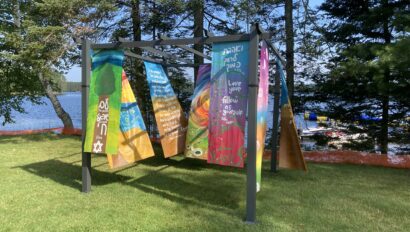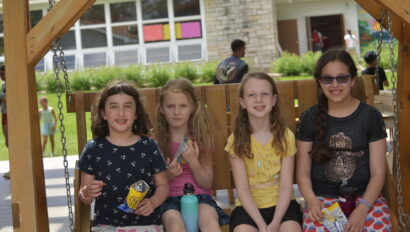After the pyrotechnics of the last few weeks – plagues, dramatic showdowns between Moses and Pharoah, two armies chasing each other, a sea splitting in half and then collapsing, Mount Sinai engulfed in flames, a first – and only – mass communal Revelation by God – this week’s Torah reading, Mishpatim, returns us firmly to the world we inhabit on a daily basis. Taking its broad cues from the outline of the Ten Commandments, Mishpatim presents us a variety of civil laws to shade in the details of how to live our lives. Ethically and otherwise, we begin to learn some of the answers to the myriad questions posed last week.
Sitting here in Ben-Gurion airport, waiting to board my flight back to the United States after a ten day staff recruiting trip in Israel, I feel very much in-line with the rhythm of these Torah readings. Leaving Chicago, I had a sense of what I needed to do: reconnect with veteran staff, hire our mishlachat, practice my Hebrew, contemplate how to deepen Ramah Wisconsin’s already unique connection to Israel. The last ten days have been inspiring and rewarding, beginning to answer the questions swimming in my mind at the end of January.
The flavor we get for the real, nuanced, textured Israel when we are on the ground here, walking the streets of Jerusalem, listening to idle chitchat in cafes, seeing the newspaper headlines, is impossible to replicate elsewhere. One day, together with a dozen colleagues in various leadership positions at Ramah, we embarked on an intensive professional development opportunity to deepen our understanding of Israel education and to supply us with skills to help facilitate conversations on controversial subjects in general in camp. Run by an amazing organization called Encounter, with whom I became involved when Tamar and I lived in Israel after we got married, our day was challenging and ultimately rewarding and inspiring.
Sitting in a ballroom in the basement of a hotel in downtown Jerusalem, the different Ramah directors and their various aides – young and old, Israeli and American – interviewed over 250 Israelis designated by the Jewish Agency as candidates to be a part of our mishlachat. Meeting with these dynamic Israelis in their twenties, we cannot help but get some flavor for what is happening in Israel. We learn of the particular poverty-alleviation initiatives a number of the candidates participated in during their army service; the breadth and depth of the Israeli youth movements and the way they empower their adolescents to take ownership over the experience of young children; and we receive a crash-course in how much more complicated Israeli Judaism is than we may assume at first glance. Though the Israelis themselves may lack the language to say so, a significant percentage of the candidates we meet look, talk, and act like Conservative Jews – finding ways to make Shabbat and Kashrut meaningful to them, engaging in the holidays of the Jewish calendar, and fully immersed in the modern world. Instead of seeing the black and white that allegedly divides Israel along religious/secular lines, we saw, again and again, every shade on the spectrum in between.
I spent significant time with current and former members of our staff, reengaging with a particularly amazing group of Israeli staff from my years as a counselor, including Dror Morag, former Rosh Machnaut (Head of our Camping program) who now serves as the Secretary General of the Meretz political party and stopped by to schmooze on his way to the swearing-in ceremony of the new Knesset, in which his party has doubled its representation from the last parliament. I sat with our six participants in Nativ, listening to them as they prepared to leave Jerusalem for their second-semester projects reflect on their social, cultural, and intellectual experiences studying in Ulpan, the Hebrew University, or the Conservative Yeshivah. I met a coterie of graduate students studying at the Pardes Institute and Conservative Yeshivah who are interested in pursuing possible teaching positions at Ramah camps this summer. I spent hours in deep conversation with members of our senior staff who are deeply invested in and committed to the vibrant success of our program.
Shortly after the drama of the Exodus and Sinai narratives and the nuts-and-bolts of Mishpatim, the Israelites begin the next obvious step in their journey: building the Tabernacle and constructing a new community. After my long trip home and a few days of catching up on sleep, that is the task to which we will now turn ourselves: hiring a staff, continuing to develop priorities in our program, and laying the groundwork for our annual community-building project in the Northwoods.
Shabbat Shalom.





